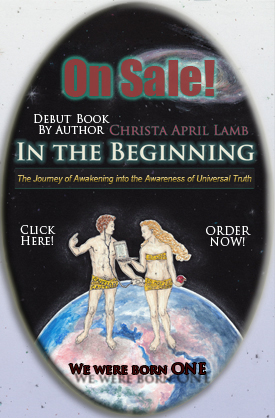Glossary of Spiritual Terms

Search by first letter:
| A | B | C | D | E | F | G | H | I | J | K | L | M | N | O | P | Q | R | S | T | U | V | W | X | Y | Z |
A
- Afterlife: The continuation of life after the body is medically dead.
- Ahimsa: A Hindu, Jain, and Buddhist concept of refraining from harming any living beings.
- Akashic Records: Claimed to be a universal collection of every thought, word, and action. Some think of it as the collective unconscious or the Universal Mind
- Ancestor worship: Also known as Veneration of the dead, is based on a belief that the deceased, often ancestors, live on after death having the ability to influence the lives of the living on earth.
- Angels:One of a class of spiritual beings; a celestial attendant of god. In medieval angelology, angels constituted the lowest of the nine celestial orders (seraphim, cherubim, thrones, dominations or dominions, virtues, powers, principalities or princedoms, archangels, and angels).
- Ascetism: A lifestyle in which a person denies him/herself worldly pleasures as a virtuous way of spiritual discipline.
- Astral Body:The astral body is a subtle body posited by many religious philosophers, intermediate between the intelligent soul and the physical body, composed of a subtle material.
- Astral Plane: It is the world of the planetary spheres, crossed by the soul in its astral body on the way to being born and after death, and generally said to be populated by angels, spirits or other immaterial beings.
B
- Bahá’í Faith:The Bahá’í Faith is a monotheistic religion founded by Bahá’u’lláh (“buh-howluh”)a Persian nobleman from Tehran in the 1860s. He left his life of princely comfort and security for spiritual pursuits. In the face of intense persecution and deprivation, he brought humanity a stirring new message of peace and unity.Today, there are about seven million Bahá’ís worldwide, most of whom live in non-Muslim Third World countries
- Blessing: A favor or gift given by God which could bring good fortune, happiness,and loving grace.
- Bliss: Supreme heavenly happiness; utter joy or contentment.
C
- Chakra:any of the seven major energy centres in the body
- Chant:A short, simple melody, especially one characterized by single notes to which an indefinite number of syllables are intoned, used in singing psalms, canticles, etc., in church services.
- Channelling:Psychic Channeling is a form of mediumship that encompasses the transfer of information and to communicate with the passed on souls.
- Cosmology:The study of the physical universe considered as a totality of phenomena in time and space.
- Consciousness:The state of being conscious; awareness of one’s own existence, sensations, thoughts, surroundings, etc.
- Contemplation:Full or deep consideration; reflection
- Creation myth:Symbolic narrative of the creation and organization of the world as understood in a particular tradition.
D
- Deism:A belief in the existence of a god on the evidence of reason and nature only, with rejection of supernatural revelation (distinguished from theism).
- Deity:A god or goddess.
- Dharma:Essential quality or character, as of the cosmos or one’s own nature.
- Dhikr:A meeting of dervishes at which a phrase containing a name of god is chanted rhythmically to induce a state of ecstasy.
- Dimension:Extension in time: Space-time has three dimensions of space and one of time.
- Divinization:In Christian theology, it is the transforming effect of divine grace. Also known as theosis.
- Duelism:Dualism is the concept that our mind is more than just our brain. This concept entails that our mind has a non-material, spiritual dimension that includes consciousness and possibly an eternal attribute.
E
- Emanationism: The doctrine that describes all existence as flowing from God, the First Reality, First Absolute, or Principle.
- Enlightenment:A state of awakening in which the individual transcends desire and suffering and attains oneness, or Nirvana.
- Entheogen:Any substance, such as a plant or drug, taken to bring on a spiritual experience.
- Epiphany:A sudden realization of great truth.
- Eschatology:a belief concerning death, the end of the world, or the ultimate destiny of humankind. It relates to Christian doctrines concerning the Second Coming, the resurrection of the dead, or the Last Judgment.
- Esotericism:The practice of limiting knowledge to a small group who hold secret doctrines.
- Eternal return: A concept where the universe is believed to be recurring, and will continue to recur, in a self-similar form an infinite number of times across infinite time and/or infinite space.
- Eternity:Time without beginning or end;existing in infinite time. Or the endless state a soul enters into upon a person’s passing.
- Eutheism: The belief that God exists and is good.
- Existence:The state or fact of existing; being.
F
- Faith healing: A religious belief that the power of belief, prayer and faith in God can heal disease and sickness.
- Fasting:A spiritual practice in many religions where a person voluntarily does not eating food for varying lengths of time.
G
- Gnosticism:A heretical movement of the 2nd-century Christian Church, teaching that esoteric knowledge (gnosis) of the supreme divine being enabled the redemption of the human spirit.
- God: The name given to the one all knowing supreme creator of the universe
H
- Heaven:A place regarded in various religions as the abode of God (or the gods) and the angels, and of the good after death, often traditionally depicted as being above the sky.
- Holy:Dedicated or consecrated to God or a religious purpose; sacred: “the Holy Bible”; “the holy month of Ramadan”.
- Hymn:A song of praise or thanksgiving to God or a deity.
I
- I Ching:An ancient Chinese manual of divination based on eight symbolic trigrams and sixty-four hexagrams, interpreted in terms of the principles of yin and yang.
- Iconolatry:The worship of sacred images.
- Inner peace:A state of inner harmony with the absence of fear and hostility.
J
- Japa:A spiritual discipline involving the meditative repetition of a mantra or name of God.
- Jihad:In Islam, An individual’s striving for spiritual self-perfection.A Muslim holy war or spiritual struggle against infidels.
- Jot: The Creator’s radiance illumines each and every soul when the spirit enters the body at birth.
- Joy:To take great pleasure and rejoice.
- Justice:The quality of being just; fairness.
K
- Karma:The total effect of a person’s actions and conduct during the successive phases of the person’s existence, regarded as determining the person’s destiny.
- Koan:A paradox to be meditated upon that is used to train Zen Buddhist monks to abandon ultimate dependence on reason and to force them into gaining sudden intuitive enlightenment.
L
- Light: The Creator’s radiance illumines each and every soul when the spirit enters the body at birth. Also known as jot.
- Love:A deep, tender, ineffable feeling of affection and solicitude toward a person, such as that arising from kinship, recognition of attractive qualities, or a sense of underlying oneness.
M
- Mantra:A word or formula, as from the Hindu Veda, chanted or sung as an incantation or prayer.
- Meditation:A practice of concentrated focus upon a sound, object, visualization, the breath, movement, or attention itself in order to increase awareness of the present moment, reduce stress, promote relaxation, and enhance personal and spiritual growth.
- Metaphysics:The branch of philosophy that deals with the first principles of things, including abstract concepts such as being, knowing, cause, identity, time, and space.
- Miracle:An event that appears inexplicable by the laws of nature and so is held to be supernatural in origin or an act of God
- Moksha:The ultimate spiritual goal, the soul’s release from the bonds of transmigration. The soul, once entered upon a bodily existence, remains trapped in a chain of successive rebirths until it has attains the perfection or enlightenment that allows it release. The methods by which release is sought and attained differ from one philosophical school to the next, but most schools consider moksha to be the highest purpose of life.
- Muraqaba:The Sufi word for meditation. Literally it is an Arabic term which means “to watch over”, “to take care of”, or “to keep an eye”.
- Mysticism:Belief that union with or absorption into the Deity or the absolute, or the spiritual apprehension of knowledge inaccessible to the intellect, may be attained through contemplation and self-surrender.
- Myth:A traditional story, esp. one concerning the early history of a people or explaining some natural or social phenomenon, and typically involving supernatural beings or events.
N
- Namste:A Hindi salutation or greeting. Namaste means, “I bow to the divinity in you,” in accordance with the Advaita Vedānta doctrine that says ātman and Bráhman are one.
- Neopaganism:Any of various religious movements arising chiefly in the United Kingdom and the United States in the late 20th century that combine worship of pagan nature deities, particularly of the earth, with benign witchcraft.
- New Age:A broad movement characterized by alternative approaches to traditional Western culture, with an interest in spirituality, mysticism, holism, and environmentalism
- Nirvana:A transcendent state in which there is neither suffering, desire, nor sense of self, and the subject is released from the effects of karma and samsara.
- Nondualism:Nondualism is the implication that things appear distinct while not being separate. The word’s origin is the Latin duo meaning “two”. The term can refer to a belief, condition, theory, practice, or quality.
O
- Oneness:Identity or harmony with someone or something
- Openness:The quality or state of being open, ready to accept new suggestions, ideas, influences, or opinions.
P
- Pandeism:A form of deism; belief, based on rational examination of our universe and in a God which designed and created our universe by completely becoming it
- Panentheism:The belief or doctrine that God is greater than the universe and includes and interpenetrates it
- Pantheism:A doctrine that identifies God with the universe, or regards the universe as a manifestation of God.
- Parapsychology:The study of the evidence for psychological phenomena, such as telepathy, clairvoyance, and psychokinesis, that are inexplicable by science.
- Perception:The ability to see, hear, or become aware of something through the senses.
- Pilgrimage:A journey to a sacred place or shrine.
- Prakash:Physical manifestation of spiritual light, or jot, upon the birth of an enlightened beings.
- Prayer: A reverent petition made to, or to commune with God, a god, or another object of worship.
- Prophecy:A prediction of what will happen in the future.
Q
- Qi(chee): The circulating life force whose existence and properties are the basis of much Chinese philosophy and medicine.
- Qigong:A Chinese system of physical exercises and breathing control related to tai chi.
R
- Reality: That which is real; an actual existence; that which is not imagination, fiction, or pretense; that which has objective existence, and is not merely an idea.
- Reincarnation:Rebirth of the soul in another body.
- Religion:A set of beliefs concerning the cause, nature, and purpose of the universe, especially when considered as the creation of a superhuman agency or agencies, usually involving devotional and ritual observances, and often containing a moral code governing the conduct of human affairs.
- Repentance:To make a change for the better as a result of remorse or contrition for one’s sins.
- Revelation:A manifestation of divine will or truth.
- Revivalism:Belief in or the promotion of a revival of religious fervor.
- Ritual:A religious or solemn ceremony consisting of a series of actions performed according to a prescribed order
S
- Sacrifice:A surrender of something of value as a means of gaining something more desirable or of preventing some evil
- Sadhana:One of a number of spiritual practices or disciplines which lead to perfection, these being contemplation, asceticism, worship of a god, and correct living.
- Saint:A person acknowledged as holy or virtuous.
- Salvation:Preservation or deliverance from destruction, difficulty, or evil.
- Satguru:A great teacher; a supremely wise guide.
- Self-realization:The development or fulfillment of one’s potential.
- Seven Deadly Sins:Also known as the Capital Vices or Cardinal Sins, is a classification of objectionable vices that have been used since early Christian times to educate and instruct followers concerning fallen humanity’s tendency to sin. The currently recognized version of the list is usually given as wrath, greed, sloth, pride, lust, envy, and gluttony.
- Seven Virtues:n Catholic catechism, the seven virtues refer to one of two lists of virtues, most commonly referring to the 4 cardinal virtues of prudence, justice, restraint or temperance, and courage or fortitude, and the 3 theological virtues of faith, hope, and love or charity; these were adopted by the Church Fathers.
- Seven Heavenly Virtues: An alternative list that is opposed to the seven deadly sins, and consists of chastity, temperance, charity, diligence, patience, kindness, and humility.
- Shabd Guru:Shabd means sound (or hymn), Guru means teacher or knowledge that transforms you. The simplest meaning is that Shabd Guru is a special sound or hymn that is a teacher.
- Shamanism:Any religion similar to Asian shamanism (especially as practiced by certain Native American tribes). A basic principle of shamanism is the belief that everything has a spirit and is alive. The tree has a spirit, the rock has a spirit, my drum has a spirit, and yes, even this computer has a spirit. If everything has a spirit and is alive, we humans then find ourselves in a position of equality rather than dominance. If you follow this logic, you begin to realize that shamanism is a radical act. Shamans don’t follow the laws of man; they follow the laws of spirits. They don’t dominate the earth and its creatures; they strive to live in harmony and balance.
- Shinto:A Japanese religion incorporating the worship of ancestors and nature spirits and a belief in sacred power (kami) in both animate and inanimate things. It was the state religion of Japan until 1945.
- Shunyata:Central philosophical concept in Hinduism and Buddhism , denoting the lack of substance or independent reality of.
- Simran:The realization of that which is of the highest aspect and purpose in one’s life’, thus introducing spirituality.
- Soul:The spiritual or immaterial part of a human being or animal, regarded as immortal.
- Spirit:
- Spiritism:The vital principle or animating force within living beings.
- Spiritual Evolution:Spiritual evolution is the philosophical, theological, esoteric or spiritual idea that nature and human beings and/or human culture evolve along a predetermined cosmological pattern or ascent, or in accordance with certain pre-determined potentials.
- Spiritualism:
- Spirituality:A system of belief or religious practice based on supposed communication with the spirits of the dead, esp. through mediums.
- Sufi whirling:A physically active meditation which originated among Sufis, and which is still practiced by the Sufi Dervishes of the Mevlevi order.
- Sufism:Mystical movement within Islam that seeks to find divine love and knowledge through direct personal experience of God.
- Supplication:To ask for humbly or earnestly, as by praying.
T
- Tao Te Ching:
Classic text of Chinese philosophy. - Tenrikyo:Largest and most successful of the modern Shinto sects in Japan.
- Theism:Belief in the existence of a god or gods, esp. belief in one god as creator of the universe, intervening in it and sustaining a personal relation to his creatures.
- Theosis:In Christian theology, it is the transforming effect of divine grace. Also known as divinization
- Torah:In Judaism it is the first five books of the Hebrew Scriptures. A scroll of parchment containing the first five books of the Hebrew.
- Transcendentalism:
A literary and philosophical movement, associated with Ralph Waldo Emerson and Margaret Fuller, asserting the existence of an ideal spiritual reality that transcends the empirical and scientific and is knowable through intuition.
U
- Unitarian Universalism:
A religious association of Christian origin that has no official creed and that considers God to be unipersonal, salvation to be granted to the entire human race, and reason and conscience to be the criteria for belief and practice.
V
- Veneration:
Regard with feelings of respect and reverence; consider hallowed or exalted or be in awe of) “Fear God as your father”; “We venerate genius” - Vipassana:
W
- Wabi-sabi:
Represents a comprehensive Japanese world view or aesthetic centered on the acceptance of transience. - Worship:
Meditation involving concentration on the body, or the insight that this provides.
X
Y
- Yana (Buddhism):
In Buddhism, it represents an augmentation to the analogy of the spiritual path, to include the idea of various vehicles that can take the practitioner along that path. - Yin yang:Two principles, one negative, dark, and feminine (yin), and one positive, bright, and masculine (yang), whose interaction influences the destinies of creatures and things.
- Yoga:A Hindu spiritual and ascetic discipline, a part of which, including breath control, simple meditation, and the adoption of specific bodily postures, is widely practiced for health and relaxation.
Z
- Zazen:
Meditation as practiced in Zen Buddhism.










Hiya, I’m new to running a blog and websites in general and was wondering how you got the “www” included in your web address name? I see your domain, “http://www.universalonehealing.com/glossary/” has the www and my domain looks like, “http://mydomain.com”. Do you know just how I can alter this? I’m using WordPress.
Thank you very much
Feel free to visit my page; seo backlink service